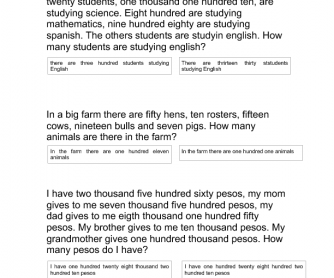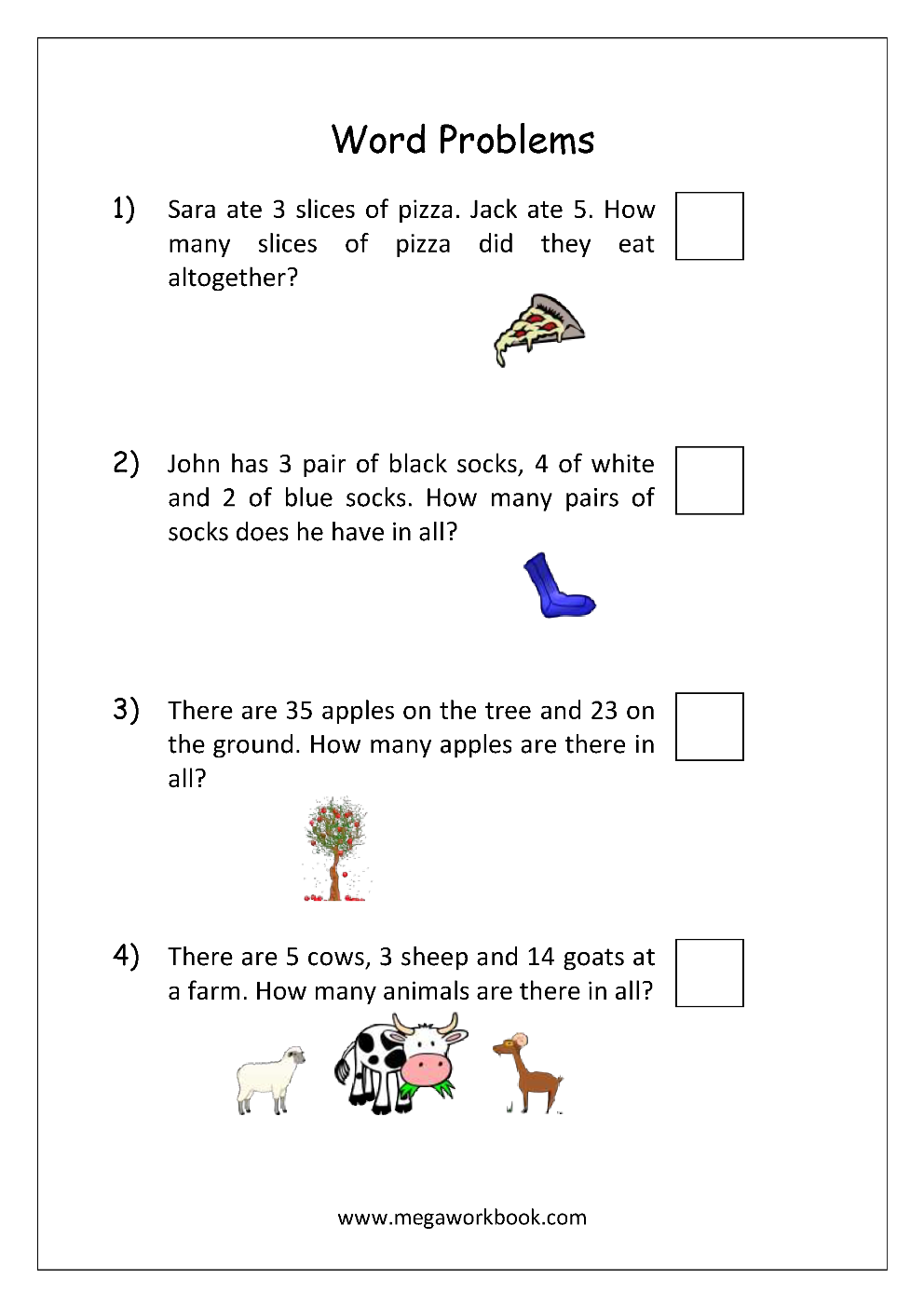

The placing of items can be based on size or shape, etc. In this, a child has to compare more than two items or groups and place the items in a logical sequence. ObservationĬhildren will use their senses to observe and gather information to organise it. This also promotes spatial awareness and critical thinking. Divergent problem solving: When one gathers many pieces of information and considers a variety of possible solutions to a problem.Ĭhildren should be able to distinguish between different values, weights, and heights.Convergent problem solving: When one gathers individual pieces of information together in mind and comes to a single solution to a problem.For example, you can use words like heavy, light, tall, short, round, add to, take away, etc. LanguageĮncourage the use of maths language in your daily life. Teach fractions with the help of everyday objects, like – giving your child a biscuit and telling them if they break it in half, we will have two pieces, and each of those pieces (the parts) are rectangles! 8. Children need to learn about recognising the difference between objects and how they function together. When children learn about patterns, it helps them to use reasoning to solve complex problems, make predictions and find a logical connections. For example, two different groups have the same number of items. Help children to identify how things around them relate. 3-D shapes: cubes, cones, cylinders, and spheres.2-D shapes: squares, circles, triangles, and rectangles.You can introduce the following shapes to your child. Introduce your child to 2-D (flat) and 3-D shapes (solid) with the help of simple examples. Therefore, encourage your child to compare using everyday objects, like who is taller and which one is bigger, and even teach your child to sort using colours and materials. Measurement & DataĬhildren love to compare things around them, even their favourite chocolate, “I want a big piece, mummy”. How many oranges are on the table now? 3. How many monkeys are on the tree now?įor subtraction, you can use this story: Five oranges were on the table. You can teach this with the help of stories also. Teach adding and subtracting in simple words, like adding is putting together, and subtracting is taking apart. You might think that it is too early for children to learn to add and subtract. Encourage your kid to touch different objects at home and count out loud, and move objects from one place to another while counting. Asking kids to count objects can help them understand one-to-one correspondence. Introduce your child to numbers with counting, writing numerals and number names. Let’s take a look at some pre-mathematical concepts for children.

Basic Mathematical Concepts For Kindergarteners These skills have a long-lasting impact on kids and help them to excel later academically. It is important that a child should be introduced to pre-maths skills as it helps to lay the foundation for problem-solving, logic, and determination in children. Importance Of Maths Skills For A PreschoolerĪccording to the studies, preschoolers have a great grasping power and, thus, easily understand what is being taught. When we teach these pre-maths skills to kids, it can prove to be extremely beneficial for your child as such skills can later be honed and improved upon to form your little one’s basic mathematical foundation once they start their schooling. For example, when introducing maths to kids, we start with making them recognise the numbers when we should teach them the value of these numbers and what they represent. Introducing these skills to children before introducing the actual maths concepts to them is recommended for their better understanding. Pre-math concept or pre-maths skills refers to the mathematical concepts or skills that a child builds during their early years, informally. In this article, we have covered some points on pre-maths skills that are essential for preschoolers and activities to teach the same of them. Therefore, developing math concepts in pre kindergarten kids is important. By the time children are learning the actual mathematical concepts in the first grade, the foundation for success is already set. These are some maths skills that kids have a natural interest in and their beginning development comes through playing. They try their hand at building and drawing different things. They are busy naturally sorting and organising. Basic Mathematical Concepts For KindergartenersĬhildren, without even realising, start developing mathematical skills while they are still toddlers exploring their environment.Importance Of Maths Skills For A Preschooler.


 0 kommentar(er)
0 kommentar(er)
